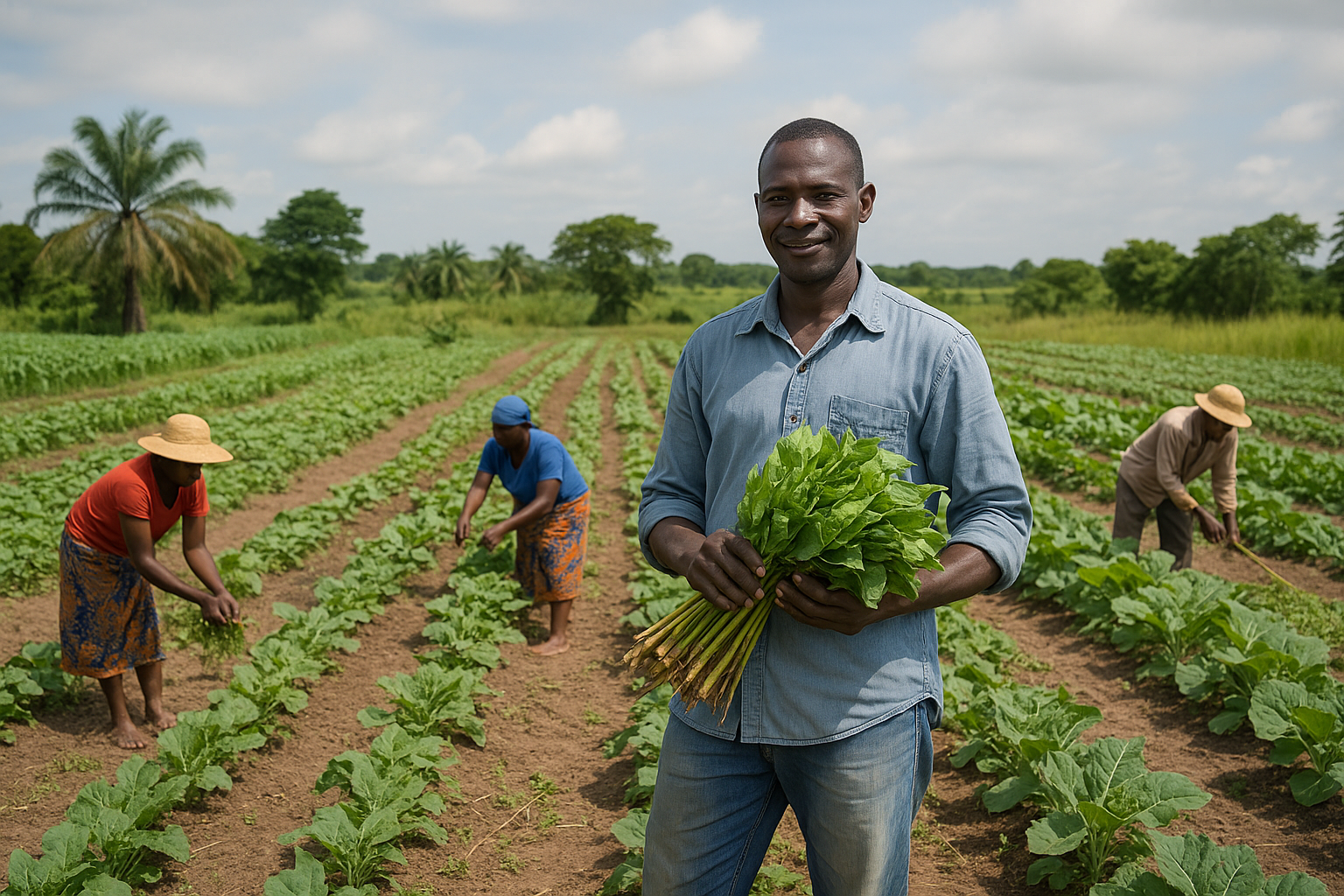IFAD Invests $3.3B in Rural Growth, Climate Resilience, and Job Creation
At the heart of IFAD’s efforts is the transformation of rural economies. The agency’s 2024 figures estimate that nearly 200,000 rural jobs have been created through its active projects.

The International Fund for Agricultural Development (IFAD) has concluded its latest three-year funding cycle (2022–2024) with a resounding demonstration of impact, channeling US$3.3 billion into new projects that target the world’s most vulnerable rural populations. The investments are tailored to support small-scale farmers and rural entrepreneurs, focusing on increasing their incomes, creating rural jobs, and building climate resilience in the face of rising global challenges.
Released alongside IFAD’s Annual Report 2024, the results reflect the institution’s sharpened focus on delivering scalable, long-term solutions to rural poverty, hunger, and climate vulnerability—challenges that have only deepened amid global economic and environmental uncertainty.
A Growing Footprint: 95.6 Million Reached
IFAD’s projects reached 95.6 million people by the end of 2023, up from 85.7 million in 2022. The scaling-up reflects IFAD’s deepening reach and operational capacity, backed by an expanding physical presence in the countries it serves. As of 2024, IFAD operates 51 field offices in 49 countries, with 42% of its staff deployed in field duty stations, doubling in just five years.
This decentralization is a deliberate strategy aimed at bringing services closer to the ground, enabling the organization to be more responsive, adaptive, and integrated into rural contexts where impact is most urgently needed.
A Boost for Rural Employment and Business Creation
At the heart of IFAD’s efforts is the transformation of rural economies. The agency’s 2024 figures estimate that nearly 200,000 rural jobs have been created through its active projects. These jobs span a variety of sectors including agriculture, agribusiness, infrastructure, and services that support rural value chains.
Projects are not only generating employment—they are helping rural communities build profitable businesses, improve market access, and reduce dependency on volatile subsistence farming. This aligns with IFAD’s goal of helping rural people become entrepreneurs, integrating them more fully into national and global economies.
Climate Finance Front and Center
Climate adaptation remains a central pillar of IFAD’s programming. In 2024 alone, US$802 million in climate finance was approved—90% of which is dedicated to adaptation efforts. IFAD’s data shows a remarkable shift: 94% of its new projects approved in 2024 are now focused on building climate resilience. This represents a significant increase from earlier years and underscores IFAD’s evolving mandate as a key climate adaptation financier for the world’s rural poor.
Projects include measures like:
-
Drought-resistant crop training and inputs;
-
Small-scale irrigation and water conservation;
-
Climate-resilient infrastructure such as storage and transport systems;
-
Community-based early warning and risk-reduction tools.
Over three quarters of all projects launched during the 2022–2024 cycle had a built-in climate adaptation component.
Stronger Delivery, Deeper Impact
IFAD President Alvaro Lario emphasized the organization’s readiness to tackle the next cycle with momentum and purpose.
“As IFAD enters its next project cycle in 2025, we are laser focused on impact and ready to meet this global moment,” he stated. “Thriving agriculture is the key to solving so many of our problems.”
IFAD’s investment approach is grounded in:
-
Building self-sufficiency, not dependency;
-
Enhancing rural resilience to climate shocks, market fluctuations, and conflict;
-
Fostering inclusive value chains that link smallholders to commercial markets;
-
Empowering women and youth, often the backbone of rural productivity but too often left behind in access to land, finance, and decision-making.
Looking Ahead: Scaling Proven Solutions
With nearly five decades of expertise in rural finance, IFAD enters its next project cycle (2025–2027) with ambitions to deepen collaboration with governments, communities, and private investors. The Fund’s proven solutions—from targeted subsidies and farmer training to climate-smart agriculture and financial inclusion—are set to reach even more rural people in the years to come.
“We already understand the solutions,” President Lario said. “Now, we are focused on scaling our delivery to benefit more communities, more livelihoods, and more futures.”










